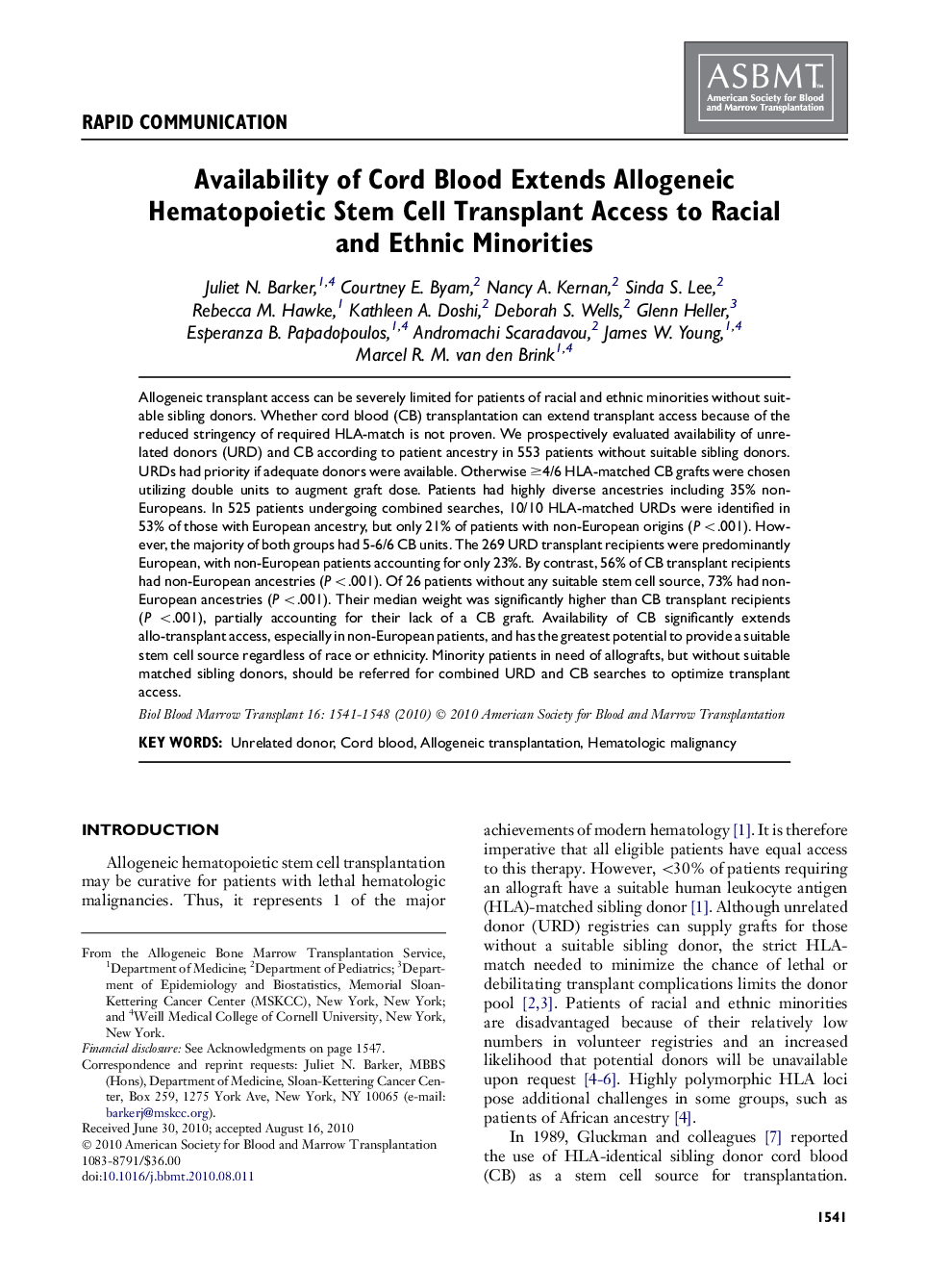| Article ID | Journal | Published Year | Pages | File Type |
|---|---|---|---|---|
| 2104115 | Biology of Blood and Marrow Transplantation | 2010 | 8 Pages |
Allogeneic transplant access can be severely limited for patients of racial and ethnic minorities without suitable sibling donors. Whether cord blood (CB) transplantation can extend transplant access because of the reduced stringency of required HLA-match is not proven. We prospectively evaluated availability of unrelated donors (URD) and CB according to patient ancestry in 553 patients without suitable sibling donors. URDs had priority if adequate donors were available. Otherwise ≥4/6 HLA-matched CB grafts were chosen utilizing double units to augment graft dose. Patients had highly diverse ancestries including 35% non-Europeans. In 525 patients undergoing combined searches, 10/10 HLA-matched URDs were identified in 53% of those with European ancestry, but only 21% of patients with non-European origins (P < .001). However, the majority of both groups had 5-6/6 CB units. The 269 URD transplant recipients were predominantly European, with non-European patients accounting for only 23%. By contrast, 56% of CB transplant recipients had non-European ancestries (P < .001). Of 26 patients without any suitable stem cell source, 73% had non-European ancestries (P < .001). Their median weight was significantly higher than CB transplant recipients (P < .001), partially accounting for their lack of a CB graft. Availability of CB significantly extends allo-transplant access, especially in non-European patients, and has the greatest potential to provide a suitable stem cell source regardless of race or ethnicity. Minority patients in need of allografts, but without suitable matched sibling donors, should be referred for combined URD and CB searches to optimize transplant access.
